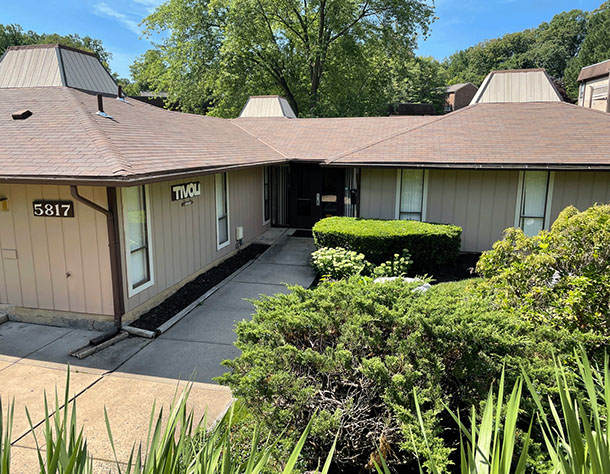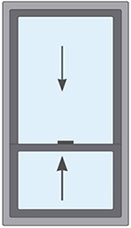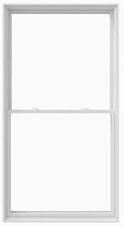Architectural Guidelines General
What the Architectural Control Committee (ACC) does:
The ACC determines whether a request for an architectural change conforms to the Master Deed or does not. All unit owners agreed to the Master Deed and By-Laws as a condition of purchasing a unit. Neither the ACC nor the Board has the authority to approve a change that does not conform to the Master Deed.
The Master Deed specifies the type of flooring you can use inside your unit. The Master Deed forbids dish antennas on balconies. The Master Deed specifies the style and color for windows and sliding doors. Approval is a moot issue because your flooring, windows, doors, and balconies either comply with the Master Deed or not.
When you do not need approval:
The Master Deed allows you to make changes inside your unit with a few exceptions.
You may change like-for-like appliances and plumbing, kitchen cabinets, countertops, closet doors, and such.
If you have any questions whether your proposed change is like-for-like, contact in-house management and the ACC. If the unit owner makes a change later determined to be prohibited by the Master Deed, the unit owner bears the risk and the cost for curing the issue.
Download the Architectural Change Form here.
When you need approval inside your unit:
You need approval for any change that requires a Fairfax County permit. For example, if you want to change your 110-volt dryer to a 220-volt dryer, you need a permit and approval. Another example: you cannot remove a wall without a permit and approval because the wall might be load bearing.
When you need approval for changes outside your unit:
You need ACC approval for any change that faces outside your unit because everything outside and facing outside is a “common element.” All the outside walls and roof are “common elements.” Your windows face outside and therefore must comply with the Master Deed. Your balcony is a “limited common element” and therefore must conform to the Master Deed.
Additional Information:
Possible Amendment to the Master Deed:
To amend the Master Deed to change compliance requirements, we need 3/4s of the unit owners (204 unit owners) to vote for the amendment.
Window and Sliding Glass Door Replacement
Replacement of Sliding Glass Doors
The frame, style, and screens must match the dimensions, and color of the original doors. The hardware must match the original. Reflective or tinted glass coating or film is not permitted.
Please contact the in-house management if you have any questions or need a referral to purchase an Oriel-style window or compliant sliding glass door.
The Master Deed and Replacement Windows
The Master Deed and the By-Laws are specific that “it shall be prohibited to install” “to make any change or otherwise alter (including any alteration in color) “the exterior of any condominium unit” “as to the harmony of external design, color, and location.”
Consequently, the only style window permitted is the Oriel-style window with the duranodic bronze color, shown here. Any other window style or color violates the Master Deed. The Board of Trustees cannot approve any alteration that does not comply with the Master Deed.
Oriel-style windows come in single and double-hung. Double-hung windows are easier to clean for unit owners not on the ground floor.
The frame must conform in color to duranodic bronze. The Tivoli office can provide you color samples so you can purchase windows and doors that match the color. Management also keeps a list of vendors who carry the matching colors.
Companies that advertise the Oriel-style window include:
- ABC Windows
- Blain Windows
- Pella
- Window Man
- Windows Connect
Remedy for Non-compliant Windows
Some units have installed windows other than the Oriel-style. Also, some units have installed sliding doors that do not match the Tivoli color scheme. As stated before, the Board of Trustees cannot approve windows or doors that do not comply with the Master Deed.
However, the Board of Trustees does not plan to force owners to replace non-compliant windows installed before August 31, 2021. Rather, the Board shall insist that when a non-compliant window is replaced, the replacement window must conform to the Master Deed: Oriel-style with duranodic bronze finish. The Board shall also insist that all replacement windows after August 31 comply.
Furthermore, the Board will, at Association expense, direct in-house management to paint window and door trim to comply with Master Deed. The trim painting occurs as part of routine exterior painting.
Flooring and Noise Complaints
Flooring and Noise Complaints
The Master Deed, written in 1974, specifically prescribes “All floor areas in a Unit must be covered by padding and carpeting, tile, or linoleum.” Although the Master Deed does not specify how much area can be tile or linoleum, most counties in our region use an 80-20 rule, whereby 20% of the space—bathrooms and kitchens—do not require carpet. The chief concern is noise transmission.
Laminate flooring was invented in 1977, three years after the Master Deed. Until 2020, Tivoli Boards never approved a Laminate floor. (In fact, a Board cannot contradict the Master Deed on any matter.) However, the Board and Management did not cite units for Laminate flooring when those units were on the ground floor or above storage. In those cases, the risk of a noise problem might not exist. Nevertheless, the unit owner bears the risk of having a non-compliant floor.
To be consistent with the Master Deed and precedence, the 2021 Board policy is that the unit owner bears the risk and cost of cure if the laminate floor contributes to a noise complaint.
In re-sale packages, Tivoli must note when floors do not comply with the Master Deed. We can also note when the non-complaint floor is on the ground level and unlikely to cause a noise complaint.
Subflooring and Noise Complaints
The original 1974 subflooring, comprised of a type of gypsum cement called Gypcrete®, is getting old. Some subfloors have cracks that transmit a crackling noise through the ceiling that disturbs the unit owner below. We see about three or four of these cases each year.
The Association has the responsibility to repair the subfloor. The unit owner has the responsibility to remove the flooring, typically carpet, to allow access to the subfloor for repairs. If your flooring is laminate, tile, or wood, your cost of removal may be expensive if the Association needs to repair the subfloor due to noise complaints. The unit owner has the responsibility to replace the flooring with materials that comply with the Master Deed. So far, the subflooring repairs have lasted 20 years without a fail.
The best solution for you and the community follows. If you plan to replace your carpeting, notify in-house management so they can inspect the subflooring and make repairs if necessary. Such repairs usually require less than 48 hours. Then, you can be sure that your subflooring will last longer than the expected life of your carpet.
Do not try to “fix” the subflooring or allow your contractor to “fix” the subflooring. If you alter the subflooring, you bear the risk of a repair that can cost up to $9,000.
If you forgo the subfloor inspection, you take the risk of needing to remove and replace the flooring so management can repair the subflooring.
Resolving Flooring and Subflooring Noise Complaints
First, management measures the noise with a decibel meter to see if the noise exceeds Fairfax County Guidelines.
Second, if the noise exceeds the Guidelines, management then determines if the cause is the flooring, subflooring, or both.
If the cause involves noncompliant flooring, the unit owner can try to mitigate the noise by adding area carpets to bring the noise within the County Guidelines.
If the cause involves the subflooring, the Association is responsible for repairing the subflooring.
Dish Antennas
Antennas and Satellite Dishes
The Master Deed and By-Laws specifically prohibit putting antennas and satellite dishes on the common elements (building sides, roof and ground) and limited common elements (balconies).






